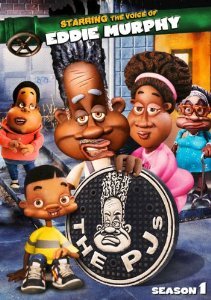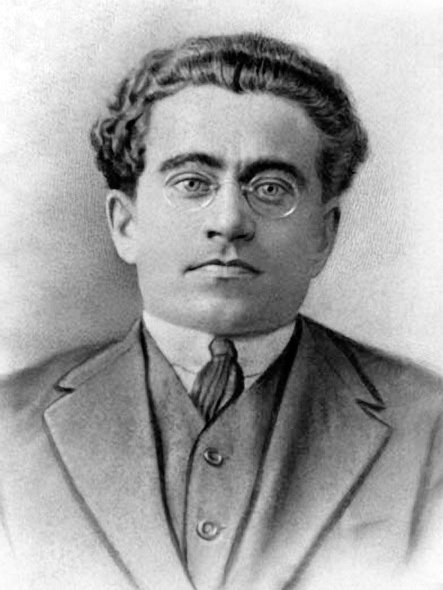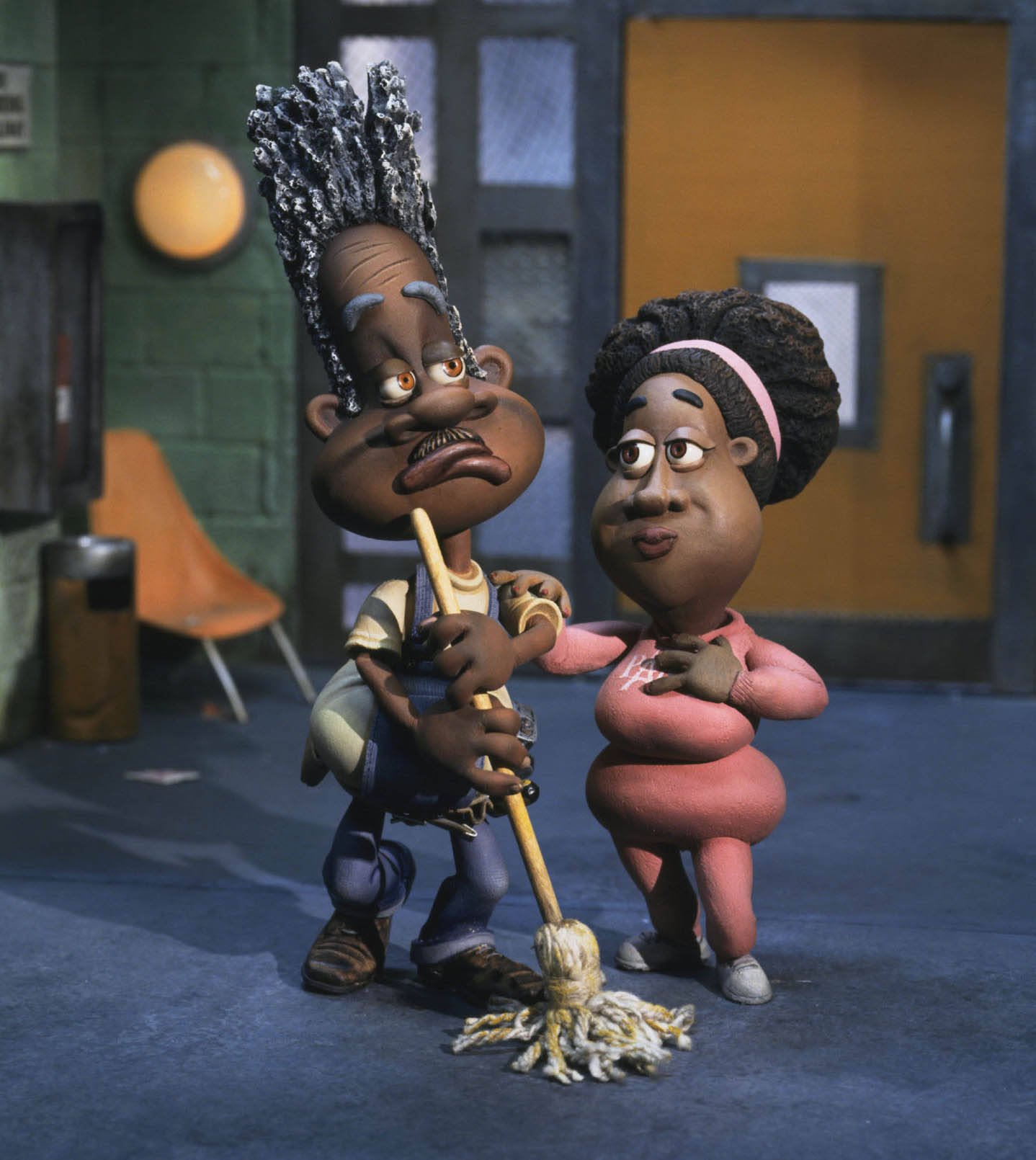What Might The PJs be Saying About Urban Leadership in Low-Income Communities?
Keeping It Real in the LHJ or What might The PJs be saying about urban leadership in low-income communities?
Before the labyrinth of the internet’s shadowy caveats, cable television was the bastion of high-quality ephemera and there are particular dungeons reserved for animated eccentricities. Shows such as Clone High, Saddle Rash and Back to the Future: the Animated Series are all-but-forgotten storylines that, in retrospect, seemed built for the life span of a may fly. But in the throes of the late ‘90s and early to mid ‘00s programming bliss (I speak from experience here), it seemed as if these shows were cut down in the midst of a virile youth.
A Satirical Exercise

The PJs is one of those programs. Airing from 1999-2001, it started on FOX before being bumped to the WB and eventually making its way to Adult Swim – the haven of precocious surrealities and psychedelic trips of nostalgia – before moving to more peripheral channels such as Fuse and TV One. Still, the show’s complicated satirical exercise remains, to me at least, admirable.
The PJs was the brainchild of one Eddie Murphy and co-produced by one Larry Wilmore, current host of The Nightly Show. Episodes are set in the Lawrence-Hilton Jacobs projects in Chicago (modeled after the notorious Cabrini-Green housing projects) and follow the adventures of building superintendent Thurgood Stubbs.
Although the show ran for three years, Eddie Murphy was only a consistent presence during the first season. Because of this (and for reasons of space), I won’t be looking at the latter two seasons, which seem to suffer the loss of Murphy’s presence (whether due to programming disagreements or Murphy’s own schedule). I don’t necessarily feel bad about this. (Phil Morris himself, who took over the voice of Thurgood after the lead actor’s departure, admits that he was unable to completely fill the void left by Murphy’s departure from the show.)
The satirical focus of the series has birthed a dichotomy of reactions: three Emmys and an Annie award as well as criticism from social activists like director Spike Lee for its use of negative racial stereotypes. In fact, on more than one occasion, the series has either paid homage or poked fun at Lee by using the director’s quintessential dolly shot to convey the problems of the episode overwhelming Thurgood Stubbs before a denouement occurs or indirectly copying Lee’s documentary-style films devoted to specific urban locations (In Ep. 10, “Operation Gumbo Drop”, for example, Muriel’s homemade documentary of the LHJ shares a similar sentiment to Lee’s Red Hook.)
Watching it again, it’s difficult to discern if the humor is based in social critique of the judicial and financial racism that created the projects as a perfect storm of poverty, unemployment (begetting the inevitable violence and crime) OR if the humor is a vaudevillian exercise using ready-made racial stereotypes to push an easy laugh. It’s difficult to tell because the show usually includes both side-by-side. Unlike The Boondocks (which began its run as a comic strip the same year of The PJs’ first season), it seemed to soften or negate its social critique with farcical elements (such as the dim-wittedness of many of the characters or pratfalls interrupting scenes posing important social critiques).
Organic Intellectuals, Urban Leaders and Italian Politicos

Of more interest to me is the mise-en-scene that the series creates. Coming at it from a background of complete naïveté (white guy from a middle-class enclave), the shows appears to pose a fictional housing projects as a philosophical construct to explore serious topics through exploiting racial stereotypes as a way of satirizing them. (Considering that this sounds like the plot to Lee’s film Bamboozled, I think I understand his criticism.) The ambiguous relationship between satire and farce still puzzles me though. The series’ period of time on Adult Swim, which raises this ambiguity as a brand at times, even further pushes the question of how much investment The PJs may have had in seriously addressing intersecting bio-political issues such as race and poverty.
That said, I don’t think I could address this question in a way that would be make me feel satisfied. However, I would like to explore something related to it: namely, the role of Thurgood Stubbs as an urban leader. Specifically, I’m thinking of the language used by Marxist political activist and writer Antonio Gramsci, who might term Thurgood Stubbs as an “organic intellectual”.
Gramsci, in The Prison Notebooks, defined “intellectuals” as figures coming to existence from a social group which
“creates together with itself, one of more strata of intellectuals which give it homogeneity and an awareness of its own function not only in the economic but also in the social and political fields.”
These are people from rich families graduating from top universities, who are able to influence scientific research, public policy and law. Their influence is inevitably filtered down into quotidian discourse. The language we use every day (for example, where did the phrase “welfare queen” come from? Why that would be the philosophers of the Nixon years of trickle-down economics, of course!).
Gramsci, however, delineates two kinds of intellectuals: traditional and organic. Traditional intellectuals are “organically bound to the landed aristocracy.” They are, in other words, propagating the ideology of the ruling class, preserving whatever, in Marxian language, exploitative issues live in the superstructure. While the traditional intellectual emerges from an aristocracy favoring historical continuity, the organic intellectuals are elaborated from out of their own social group (and not over and above the masses such as the traditional intellectuals are). The organic intellectuals receive a technical education, are closely bound to industrial labor and form their insights and opinions from a philosophy gleaned from the everyday struggles of the fellow members of their social group. The role of an intellectual, by its very existence, defines itself as part of a removed class; a class that must step outside of its social group to consider the issues of the social group. Yet, the organic intellectual, according to Gramsci, does not and (practically, perhaps) cannot do this.
Symbiosis In The Projects
So we have Thurgood Stubbs, who lives, in part, because he is supported by his social group; that is, the residents of the LHJ. In return, Stubbs cares for their lives through daily building maintenance. This can be everything from a cockroach infestation to basic survival such as water and heat. Stubbs is also clumsy and (often) an ineffective leader. His plans backfire tremendously. For example, he rouses the tenants to raise money for two children in the building to attend a summer camp… a week after the camp has already begun (Ep. 9, “Boyz in the Woods”). He refurbishes an old theater to ignite a sense of community spirit in the projects (Ep. 5, “Rich Man, Porn Man”), but accidentally shows a pornographic film at its opening (and when he attempts to dismantle the theater, he accidentally sets it on fire and ends up in jail). A gang steals the front door of the building and, in the process of retrieving the door, Stubbs puts himself and all the tenants under its control (Ep. 3, “The Door”).
Thurgood, despite these many instances of incompetency, plays a vital role in leading the urban poor in various initiatives to improve or protect their way of life. Although he accidentally commandeers a pornographic film reel instead of a classic movie from local street hustler Tarnell, Thurgood successfully restores an abandoned theater of his youth (now crack house). After a break-in, Thurgood brings tenants together to form a Neighborhood Watch (Ep. 7, “A Hero Ain’t Nothing But A Supa”), he transforms the roof of the apartment building into an urban garden (“Ep. 13, “Haiti Sings The Blues”) and organizes a fundraising drive for an elderly tenant (Ep. 2, “Bones, Bugs and Harmony”).
The Model of Utter Incapacity

An interesting aspect of Thurgood as an organic intellectual would be that despite his community oriented spirit, the larger thrust of the series’ first season circulates around how leadership emerges at the site of his incapacities as a leader or flagrant errors. In Episode 11, “U Go Kart”, Thurgood allows Juicy, a child in the building, to take the blame for the theft of Calvin’s (Juicy’s best friend) go kart. It is only after Juicy falsely confesses to the crime (and the rest of the tenants admit to borrowing and damaging the go kart) without asking that Thurgood finally admits his error. Although he displays strong devotion to community activism, Thurgood also considers himself better than many of the tenants and does not hesitate to demonstrate his superiority. In “Bougie Nights”, Episode 6, he inherits a large top floor penthouse after the rich tenant’s death, quickly shutting himself off from all others (literally) below him.
Thurgood is never able to maintain his hubris for very long. Either his own conscience or outside circumstances bring him back down to scale. Yet, it is through Thurgood’s humbling that two of Gramsci’s primary ideas appear. First, Gramsci wrote that human beings, as an ontological fact, are homo sapiens. A priori, all humans are intellectuals. The stratum of intellectualism is not exclusive. Second, a stable nation-state (or community in low-income housing) can only be maintained through coercion, consent and force. Thurgood has no power over his tenants (many of them don’t seem to even pay rent); however, he does seem to be included as an important part of their collective. He is never completely an outsider; rather, he is a positive object of antagonism that they wrestle against as a way of addressing the larger hegemonic power of institutional racism. For any who remember the series, intellectual may not be the first word that comes to mind when thinking of Thurgood Stubbs, but how he navigates the impossible demands placed upon him as a liaison between urban poor and a governmental corporation largely indifferent to their complaints and concerns requires a certain level of genius.
Featured image credit: popoptiq.com

